Mergers & Acquisitions
Lotte puts Lotte Chemical Titan in Malaysia on market
LG Chem is in talks with KPC to sell a stake in a naphtha cracking facility to Kuwait Petroleum Corp.
By Mar 06, 2024 (Gmt+09:00)
4
Min read
Most Read
LG Chem to sell water filter business to Glenwood PE for $692 million


KT&G eyes overseas M&A after rejecting activist fund's offer


Kyobo Life poised to buy Japan’s SBI Group-owned savings bank


StockX in merger talks with Naver’s online reseller Kream


Meritz backs half of ex-manager’s $210 mn hedge fund


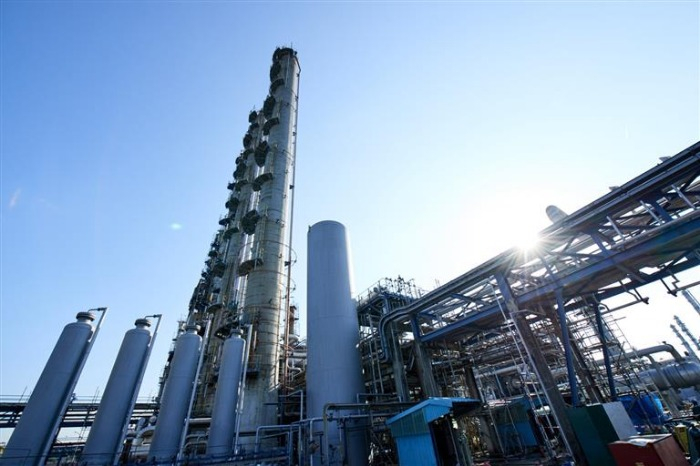
Lotte Chemical Corp., South Korea’s No. 2 petrochemicals company, has embarked on the process of selling its Malaysian unit Lotte Chemical Titan Holdings. Meanwhile, its rival LG Chem Ltd. is in talks with Kuwait Petroleum Corp. to sell a stake in a domestic naphtha cracking facility, according to sources with knowledge of the situations on Wednesday.
The combined value of the prospective deals is estimated at $1.3 billion, including some $600 million for Lotte Cemical's Malaysian unit.
The two companies have been scaling back their petrochemical operations to shift toward high-value, growth markets such as materials for batteries, specialty chemicals and renewable energy, as Chinese rivals eat away at their share of a market suffering from oversupply and dwindling demand.
Lotte Chemical is searching for a buyer of Lotte Chemical Titan (LC Titan) and tapping domestic and foreign companies, as well as global private equity firms via investment banks, sources told Market Insight, the Korea Economic Daily's capital market news outlet.
It puts on sale all outstanding shares of the Malaysian arm traded on the Malaysian stock market, equivalent to a 74.7% stake. Based on its market capitalization, the stake up for grabs is worth $566 million.
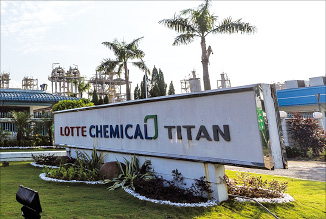
In 2010, Lotte Chemical acquired full ownership from Malaysia’s Chao Group with a 70% stake and Permodalan Nasional Berhad, a Malaysian investment management company, with a 30% stake, for 1.5 trillion won ($1.1 billion).
In 2017, it went public in Malaysia at a market value of 4 trillion won, or 2.5 times the price it had paid for the purchase. Its enterprise value had almost halved to $592 million as of Wednesday.
The deal catapulted Lotte Chemical to the status of a global chemical company, It had followed a string of acquisitions of domestic petrochemical companies, including some units of Hyundai and Samsung groups.
Asked about the possible divestment of LC Titan, a Lotte Chemical official said: “We are looking into various options to sophisticate our portfolio, but nothing has been determined as to whether or not to sell Titan.”
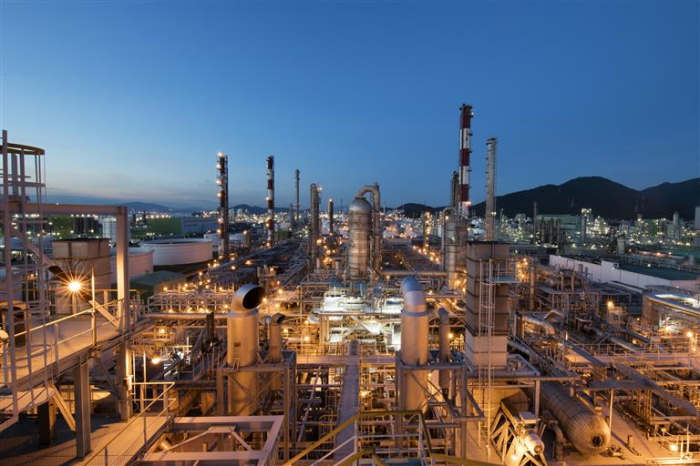
LC Titan had earned between 300 billion and 500 billion won annually until the mid-2010s.
But it fell into deficits starting in the second quarter of 2022 and logged a 61.2 billion won loss in 2023. Last year, Lotte Chemical jettisoned all its production facilities for general-purpose petrochemicals in China to reduce shortfalls.
In 2023, Lotte Chemical racked up 201.5 billion won in losses in its basic petrochemicals division. The same year, LG Chem’s petrochemicals unit posted a loss of 14.3 billion won.
LG CHEM'S TALKS WITH KPC
LG Chem seeks to spin off its second NCC plant in Yeosu, South Jeolla Province, into a separate entity whose value is estimated at 2 trillion won. It hopes to sell a 49% stake in the spin-off to KPC while holding the remaining 51%.
KPC is known to show interest in the NCC facility, where it can crack crude oil-based naphtha from the companies it manages to produce petrochemical products.
LG Chem had attempted to sell the second NCC facility in the south of Korea to oil and investment companies in the Middle East, but to no avail. It spent 2.6 trillion won on building the second NCC plant.
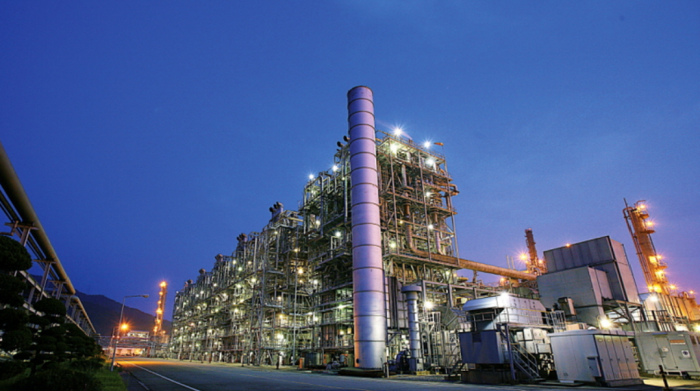
The two Korean companies’ moves indicate a shake-up in the domestic petrochemicals sector, battered by a sharp decline in exports.
According to the Korea Petrochemical Industry Association, China accounted for 42.9% of Korean petrochemical companies’ exports in 2020. That proportion fell to 36.3% in 2023 after Chinese petrochemical companies began aggressively investing in facilities starting in 2020.
China’s ethylene production surged 60% to 51.7 million tons in 2023, compared to 32.3 million tons in 2020. Its production volume is projected to grow to 56.0 million tons in 2025, according to industry observers.
China is 100% self-sufficient in its supply of basic petrochemicals such as ethylene and propylene, referred to as the rice of the industry. Its supply is forecast to exceed demand by 20% in 2025.
What's worse, China is dumping its products in Malaysia and other Southeast Asian markets to make up for reduced demand at home.
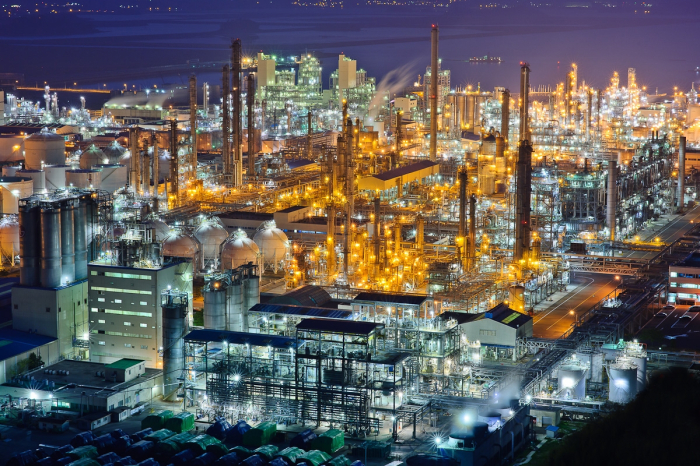
In the market of intermediate feedstocks such as paraxylene and propylene, which generate higher margins than basic petrochemicals, China is also emerging as a stronger player.
It is projected that China will meet all its needs for intermediate petrochemicals without imports by 2025.
Due to the supply glut, the ethylene-naphtha spread, or the difference between the prices of ethylene and its raw material naphtha, halved to $195 per ton in February this year, versus $398 in 2021. Its break-even point is about $300 per ton.
Write to Hyung-Kyu Kim, Jun-Ho Cha and Ji-Eun Ha at khk@hankyung.com
Yeonhee Kim edited this article
More to Read
-

-
 Mergers & AcquisitionsLotte Chem’s sale of Pakistani PTA unit falls through
Mergers & AcquisitionsLotte Chem’s sale of Pakistani PTA unit falls throughJan 15, 2024 (Gmt+09:00)
2 Min read -

-
 PetrochemicalsLotte Chemical sells JV stakes in China, eyes other profitable markets
PetrochemicalsLotte Chemical sells JV stakes in China, eyes other profitable marketsOct 09, 2023 (Gmt+09:00)
3 Min read -
 PetrochemicalsLG Chem to sell polarizer businesses to Chinese peers for $800 mn
PetrochemicalsLG Chem to sell polarizer businesses to Chinese peers for $800 mnSep 27, 2023 (Gmt+09:00)
2 Min read -

-
 Corporate restructuringLG Chem to sell film factories amid shift to new growth drivers
Corporate restructuringLG Chem to sell film factories amid shift to new growth driversAug 23, 2023 (Gmt+09:00)
3 Min read -
 PetrochemicalsLotte Chemical sells off debt-ridden JV to China's Sanjiang
PetrochemicalsLotte Chemical sells off debt-ridden JV to China's SanjiangAug 16, 2023 (Gmt+09:00)
1 Min read -
 EarningsLotte Chemical posts fifth straight quarterly operating loss in Q2
EarningsLotte Chemical posts fifth straight quarterly operating loss in Q2Aug 09, 2023 (Gmt+09:00)
1 Min read
Comment 0
LOG IN


